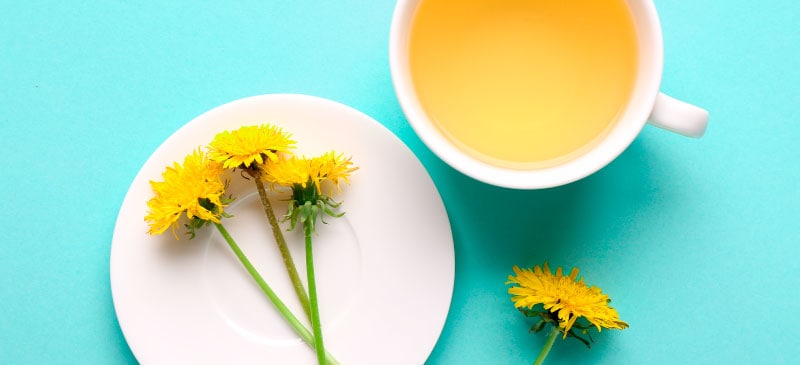This Dr. Axe content is medically reviewed or fact checked to ensure factually accurate information.
With strict editorial sourcing guidelines, we only link to academic research institutions, reputable media sites and, when research is available, medically peer-reviewed studies. Note that the numbers in parentheses (1, 2, etc.) are clickable links to these studies.
The information in our articles is NOT intended to replace a one-on-one relationship with a qualified health care professional and is not intended as medical advice.
This article is based on scientific evidence, written by experts and fact checked by our trained editorial staff. Note that the numbers in parentheses (1, 2, etc.) are clickable links to medically peer-reviewed studies.
Our team includes licensed nutritionists and dietitians, certified health education specialists, as well as certified strength and conditioning specialists, personal trainers and corrective exercise specialists. Our team aims to be not only thorough with its research, but also objective and unbiased.
The information in our articles is NOT intended to replace a one-on-one relationship with a qualified health care professional and is not intended as medical advice.
Dandelion Tea for Liver Detox, Better Skin and Healthy Stomach
September 1, 2022

Most homeowners don’t realize that the yellow weeds that pop up every spring and must be kept at bay for months are actually plants that have a number of powerful health benefits. In fact, humans have been using dandelions in food for much of recorded history, including dandelion tea.
Dandelion root is used in the treatment of muscle aches, loss of appetite, upset stomach, intestinal gas, gallstones, joint pain, eczema and bruises. It also increases urine production and serves as a laxative to increase bowel movements.
Some people use dandelion to treat infections, especially viral infections and even cancer. It’s also used as a skin toner, blood tonic and digestive tonic.
Meanwhile, dandelion greens can be chopped up and used as a garnish or an addition to a sauce, or they can be eaten raw or cooked to minimize their somewhat bitter flavor.
You can also use the dandelion root, stems and flowers to make a delicious and super-healthy dandelion tea. It’s considered one of the top healthy drinks. Either way, you reap the benefits of this unexpected nutritional plant.
Dandelion Tea Benefits
1. Protects Bones
Calcium is the most abundant mineral in the body, and dandelions contain 10 percent of your recommended daily value. Calcium is stored in the structure of the bones and teeth.
It’s used for nerve transmission, blood clotting, hormone secretion and muscle contraction.
By drinking dandelion tea or eating the greens, you can help avoid tooth decay, muscle tension and high blood pressure that may be caused by calcium deficiency.
2. High in Vitamin K
Vitamin K is an essential fat-soluble vitamin that plays an important role in bone and heart health. Can you believe that dandelions contain over 500 percent of your daily value?
That makes them excellent at preventing vitamin k deficiency.
Vitamin K is the main vitamin involved in bone mineralization and blood clotting. It also helps maintain brain function and a healthy metabolism.
There is increasing evidence that vitamin K can improve bone health and reduce the risk of bone fractures, especially in postmenopausal women who are at risk for osteoporosis.
Vitamin K also helps with menstrual bleeding because of its blood-clotting capabilities. Recently, it has caught attention for its cancer-fighting properties too.
Vitamin K has been shown to be effective in helping reduce the risk of prostate, colon, stomach, nasal and oral cancers.
One study conducted in 2014, published in the Journal of Nutrition, included over 7,000 participants and found that vitamin K has the power to significantly reduce the risk of cancer and cardiovascular mortality.
3. Cleanses Liver
The role of our liver is to produce bile, which helps enzymes in the body break down fats into fatty acids — and to filter and detoxify our blood. The liver also has the amazing ability to break down and store amino acids, synthesize and metabolize fats and cholesterol, store glucose, and regulate our internal functions.
The vitamins and nutrients present in dandelions help cleanse our livers and keep them working properly.
Dandelions aid our digestive system by maintaining the proper flow of bile. Dandelion tea and stems are also good vitamin C foods, which animal studies show may help with mineral absorption, reducing inflammation and preventing the development of disease.
4. Fights Diabetes
Dandelion tea and juice help people with diabetes by stimulating the production of insulin from the pancreas and keeping blood sugar levels low.
If our pancreas doesn’t produce proper amounts of insulin or our cells can’t properly process insulin, it results in diabetes. Because the glucose isn’t properly utilized, it accumulates in the bloodstream and results in high blood glucose or sugar levels.
To fight diabetes naturally, dandelion tea also helps the body remove excess sugar that’s stored in the body — because it’s a diuretic.
Research published in the Review of Diabetic Studies suggests that the anti-diabetic properties of dandelion are attributed to bioactive chemical components, including chicoric acid and sesquiterpene lactones.
Researchers point out that it has also been used for diabetes because of its anti-hyperglycemic, antioxidative and anti-inflammatory properties.
5. Boosts Skin Health
The milky white substance that you get on your fingers when you break a dandelion stem is actually great for your skin. The sap of a dandelion stem is highly alkaline, and it has germicidal, insecticidal and fungicidal properties.
The sap can be used to relieve itching or irritation from eczema, ringworm, psoriasis and other skin infections.
Plus, research shows that dandelion leaf and flower extracts have been found to serve as potent protective agents against UVB damage and absorption.
6. High in Antioxidants
Another important dandelion benefit is its high antioxidant properties. Studies indicate that antioxidants are substances that help prevent certain types of cell damage, especially those caused by oxidation.
The body uses antioxidants to fight free radical damage, which is very dangerous for the body’s tissues and is connected to cancer and premature aging. Luckily, drinking dandelion tea may help the body avoid cell damage from free radicals.
In fact, a study conducted in 2011 by the Department of Chemistry and Biochemistry at the University of Windsor in Canada found that dandelion root extract was effective in killing different cancers as a result of its free radical-fighting abilities.
7. Rich in Fiber
Dandelion tea and greens are high-fiber foods, making them beneficial aids for digestion and intestinal health.
Fiber is responsible for quickly moving foods through the digestive tract, helping it function optimally. It works by drawing fluids from the body to add bulk to the stool.
Research shows that high-fiber diets also reduce the risk of obesity, heart disease and diabetes, digestive problems, kidney stones, and obesity. Fiber may also have the power to lower the risk of some cancers.
8. Good Source of Vitamin A
Vitamin A plays a critical role in maintaining healthy vision, neurological function, healthy skin and more. It is an antioxidant, so it has the power to reduce inflammation by fighting free radical damage.
Studies suggest that dietary vitamin A offers antioxidants that prevent carcinogenesis by decreasing the levels of the free radicals that cause DNA damage.
Just one cup of dandelion greens has over 100 percent of the daily value of vitamin A, so you can fight premature aging, respiratory infections and vision impairment with just a mug of dandelion tea.
Vitamin A also provides immune support, promotes skin health and helps prevent cancer. For women who are pregnant, getting enough vitamin A is very important, especially during the third trimester.
9. Serves as Diuretic
Research published in the Journal of Alternative and Complementary Medicine indicates that dandelion root has a natural diuretic effect, allowing your liver to more quickly eliminate toxins.
It also helps strengthen the immune system, balance blood sugar levels, relieve heartburn and soothe digestive issues.
Because dandelion helps reduce uric acid and stimulates urine production, it’s beneficial for fighting bacterial infections within the digestive tract and reproductive organs.
10. Prevents Urinary Tract Infections
Another surprising health benefit of dandelion tea is that it can help prevent urinary tract infections, as well as bladder disorders, kidney problems and possibly even cysts on reproductive organs. This is due, in large part, to its diuretic properties.
A specific combination of dandelion root and leaf extracts of another herb called uva ursi taken by mouth helps reduce the number of UTIs in women. In this combination, uva ursi is used because it kills bacteria, and dandelion is used because of its ability to increase urine flow and fight infection.
Related: Top 7 Benefits of Green Tea: The No. 1 Anti-Aging Beverage
How to Make Dandelion Tea
There are so many ways to incorporate the dandelion plant into your every day meals. One of the best ways to experience all of the the health benefits of dandelion tea is by making your own at home.
If you like to drink other herbal teas, such as chamomile or stinging nettle, you may also enjoy dandelion tea and vice versa.
You can make tea with the dandelion roots or flowers. It’s very easy — follow these simple directions:
- Steep about one tablespoon of the stems or flowers for 30 minutes in five ounces of boiling water.
- Strain the roots and flowers, or drink them up with your tea.
- This recipe can be doubled or tripled if you plan on making several days’ worth of tea.
You can also buy organic dandelion tea bags at most health food stores. You may even find teabags that are made with both dandelion and turmeric.
Additionally, try roasting the root of your dandelion plant to make a coffee-like beverage. Here’s how it’s done:
- After cleaning the root, chop it in a food processor.
- Use a baking sheet, and roast the pieces in an oven at 300 degrees Fahrenheit for two hours.
- Then let it steep in boiling water for 10 minutes before drinking.
How do you pick dandelion roots or flowers for tea? Make sure to avoid areas where weed-killer may have been sprayed. You don’t want to consume the nasty chemicals found in weed-killer!
Try to pick from an area that’s free from pollution, too. You want to look for the younger and tender plants because they’re less bitter.
You can also find bunches of dandelion plants in your local health store. If you plan on using the roots, dig down deep, and pull up the entire mass — sometimes it’s attached to several stems. Clean it with water until all of the dirt is removed.
Once you’re ready to eat your dandelions, make sure to wash them thoroughly. They can be stored in the refrigerator for a week — sometimes wrapping the greens in a damp paper towel keeps them fresh longer.
You can use the raw root to make dandelion root tea or use roasted dandelion root to make coffee. Dandelion greens can be sautéed, boiled and eaten raw.
Related: Linden Tea Benefits for the Body and Mind
Risks, Side Effects and Interactions
Drinking dandelion tea is considered safe. Opt for using one tablespoon of chopped stems for every five ounces of water.
Before making your tea more potent, speak to your doctor.
If you plan to drink dandelion tea daily, it’s best to talk to your doctor to rule out any possible interactions. Avoid drinking dandelion tea if you are taking antibiotics or are allergic to dandelion.
If you’re allergic to ragweed and related plants (like daisies, chrysanthemums, marigolds), you’re likely to be allergic to dandelion. If you have allergies, be sure to check with your health care provider before taking dandelion.
Dandelions can cause allergic reactions when taken by mouth or applied to the skin of sensitive people.
Dandelion might decrease how much antibiotics the body absorbs. This means that taking dandelion along with antibiotics might decrease the effectiveness of some antibiotics.
Some antibiotics that might interact with dandelion include ciprofloxacin, enoxacin, norfloxacin, sparfloxacin, trovafloxacin and grepafloxacin.
Taking dandelion might decrease how well the body gets rid of lithium because of its diuretic properties. This could increase how much lithium is in the body and result in serious side effects.
There is also potassium in some diuretic pills, so be careful when taking these “water pills” because you don’t want too much lithium or potassium in the body.
Dandelion might decrease how quickly the liver breaks down some medications. Before taking dandelion, talk to your health care provider if you take any medications that are changed by the liver.
Some of these types of medications include amitriptyline, haloperidol, ondansetron, propranolol, theophylline and verapamil.
Conclusion
- Eating the stems and flowers of dandelion is safe and healthy. They can be used to make tea or extracts, and the sap from the roots is even applied topically to boost skin health.
- The benefits of dandelion include its ability to boost the health of your bones, digestion, urinary tract and skin. It helps fight liver disease and is rich in nutrients, including fiber, antioxidants, vitamin A and vitamin K.
- Want to best effects of dandelion for health? Make tea! It’s easy to make dandelion tea at home or prepare it from teabags bought at your local health food store.


